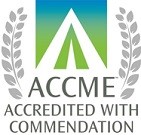Rapid Cycle Deliberate Practice
Rapid-Cycle Deliberate Practice (RCDP) is a simulation-based instructional strategy that focuses on rapid acquisition of necessary skills. In the last four years, RCDP’s use in training emergency clinical situations has been associated with improved team performance in several different studies.
Developed by a team of researchers at Johns Hopkins University, RCDP is an innovative cognitive framework that uses simulation as the instructional tool, as well as the components of deliberate practice, mastery learning, and crisis resource management, to improve healthcare team performance during low-volume, high-risk, time-sensitive patient events.
The framework requires that instructors foster psychological safety, establish their role as coach/mentor, and include evidence-based or expert-derived solutions for errors that occur during a simulated event.
An RCDP curriculum should be designed to maximize the time participants spend practicing patient care the “right way,” with instructors observing performance gaps and providing prescriptions to correct participant actions. The goal of RCDP is mastery of key learning objectives based on established procedures or protocols, with instructor coaching and feedback provided as necessary so that each team member can achieve mastery performance.
Since its introduction in 2012 and initial findings regarding its effectiveness, educators have been eager to learn how to incorporate RCDP into healthcare training. The Johns Hopkins Medicine Simulation Center is excited to now offer a hybrid training that pairs an online course with a two-day on-site immersive simulation-based training.
Rapid-Cycle Deliberate Practice (RCDP) Master Trainer course: Phase I
The first phase of the Rapid-Cycle Deliberate Practice (RCDP) Master Trainer course includes an online course consisting of four learning modules:
- Module 1: Background
- Module 2: RCDP in Action
- Module 3: Feedback-Replay
- Module 4: Designing Your RCDP Course
These modules include foundational knowledge of the concepts of RCDP, educational foundations of the framework, indications for its use, its key components, and an introduction to developing an RCDP session. The course culminates with an initial design of your own RCDP course, walking you through the process of completing your needs assessment, identifying established procedures, building learning objectives, designing simulation scenarios, and developing prescriptions for use during the feedback-replay loop.
Upon conclusion of the online course, learners will obtain a certificate of completion and will be able to enroll in the on-site, immersive training.
Click here for more information about the online course
Rapid-Cycle Deliberate Practice (RCDP) Master Trainer course: Phase II
The second phase of the Rapid-Cycle Deliberate Practice (RCDP) Master Trainer course is an on-site two-day immersive study in RCDP, which will be held at the Johns Hopkins Medicine Simulation Center’s Simulation Hospital on the East Baltimore Campus.
It will include:
- Small group work,
- Team- and case-based learning activities,
- Video review and discussion with expert trainers, and
- Mentored practice in teaching RCDP’s training methods.
Expert instructors will be on hand, coaching and mentoring learners throughout the experience.
Unique to the on-site study is implementation planning, where each learner will design how they plan to incorporate RCDP into their home programs. The implementation plan includes a reporting structure to the Johns Hopkins RCDP team, so that continued mentoring and assessment of training effectiveness and outcomes can be provided.
Click here for more information about the on-site course
RCDP Master Trainer Completion
RCDP Master Trainer completion includes both the online and on-site portions of the RCDP Master Trainer course. Mentoring from the Johns Hopkins Medicine Simulation Center RCDP team will continue beyond the on-site course, to support new RCDP Master Trainers as they implement RCDP into their home programs.
Accreditation Statement

The Johns Hopkins University School of Medicine is accredited by the Accreditation Council for Continuing Medical Education (ACCME) to provide continuing medical education for physicians.
Credit Designation Statement
The Johns Hopkins University School of Medicine designates this enduring material – internet activity for a maximum of 5 AMA PRA Category 1 Credits™. Physicians should claim only the credit commensurate with the extent of their participation in the activity.
POLICY ON PRESENTER AND PROVIDER DISCLOSURE
It is the policy of the Johns Hopkins School of Medicine that the presenter and provider globally disclose conflicts of interest. The Johns Hopkins School of Medicine OCME has established policies that will identify and resolve conflicts of interest prior to this educational activity. Detailed disclosure will be made prior to presentation of the education.
References
Hunt, Elizabeth A., Duval-Arnould, J. M., Nelson-McMillan, K. L., Bradshaw, J. H., Diener-West, M., Perretta, J. S., & Shilkofski, N. A. (2014). Pediatric resident resuscitation skills improve after “rapid cycle deliberate practice” training. Resuscitation, 85(7), 945–951. https://doi.org/10.1016/j.resuscitation.2014.02.025
Hunt, Elizabeth A., Duval-Arnould, J. M., Chime, N. O., Jones, K., Rosen, M., Hollingsworth, M., … Perretta, J. S. (2017).
Integration of in-hospital cardiac arrest contextual curriculum into a basic life support course: a randomized, controlled simulation study. Resuscitation, 114, 127–132. https://doi.org/10.1016/j.resuscitation.2017.03.014
